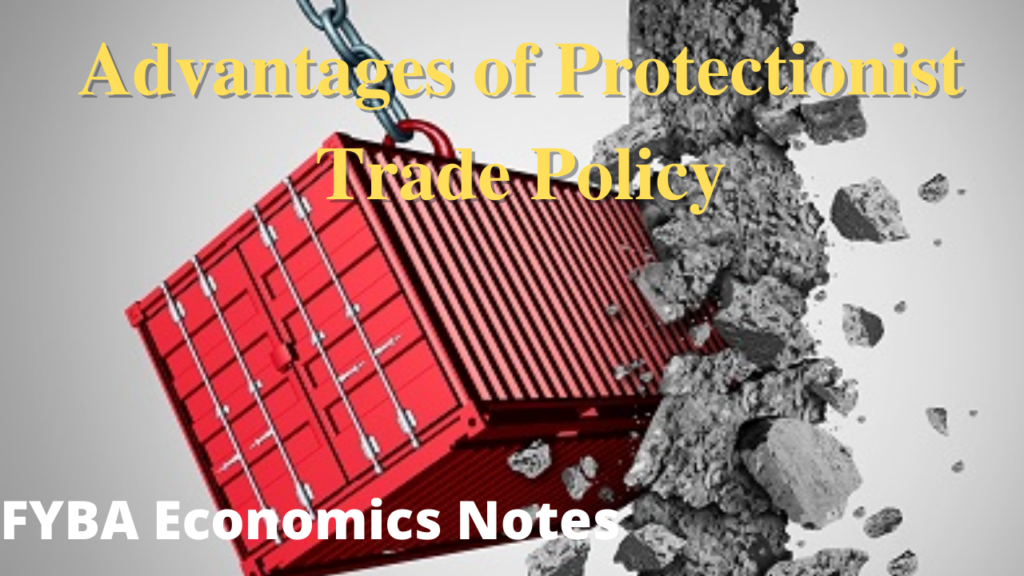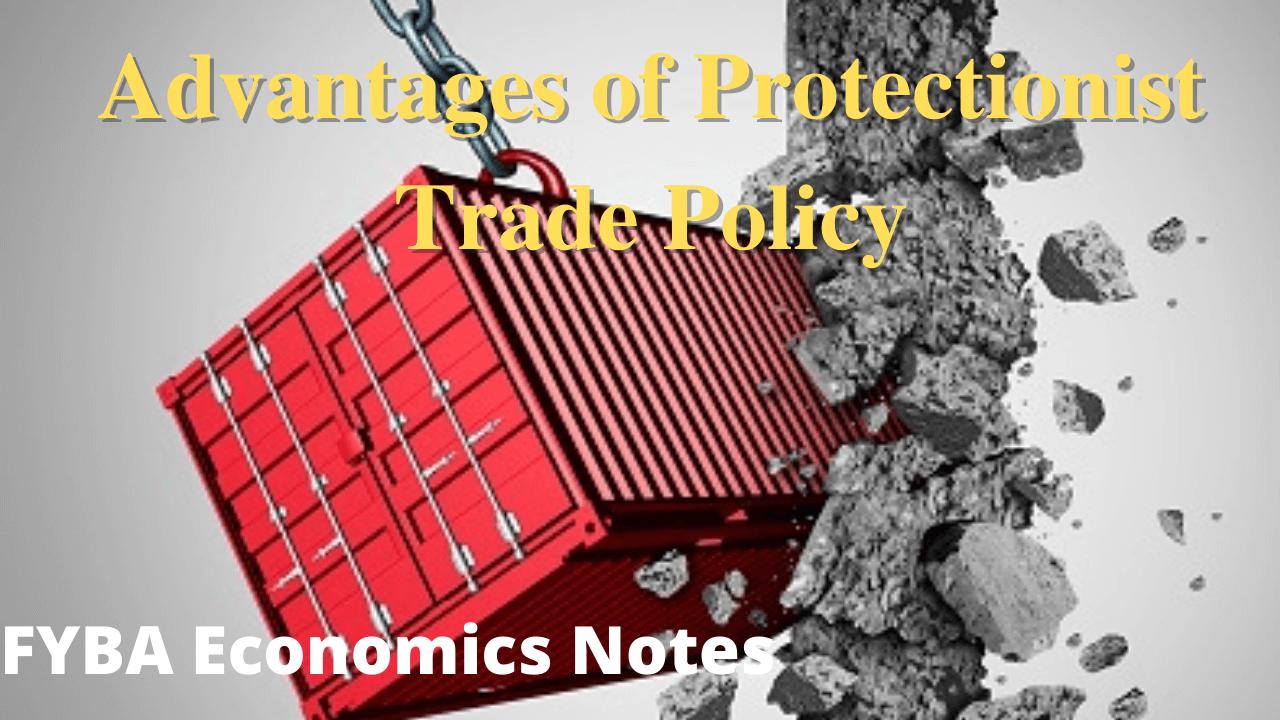Explain the arguments made in favor protectionist trade policy | FYBA Economics Notes 2022
Explain the arguments made in favor of protectionist trade policy
WHAT IS TRADE POLICY?
- Trade policy is also known as a commercial policy that is concerned with international trade between countries of the world. Exports and imports are the two components of international trade. Therefore, trade policy can be categorized into two main policies that are import policy and export policy.
- Trade policy aims at impacting the volume composition and direction of international trade that is trade between one’s own country and the rest of the world. The volume of trade pertains to the size of imports and exports.
- The composition of trade refers to the goods and services imported and exported and the direction of trade refers to the countries from which goods and services are imported and the countries to which goods and services are exported.
PROTECTIONIST POLICY
- A protectionist policy is adopted by a country to give protection to domestic or national industries against competition from imports. The most common instruments of protection are import tariffs and import quotas. Other instruments of protection include exchange control, state trading, subsidies, and international alliances.
- It was Alexander Hamilton who put forward the argument for a protectionist trade policy in the 19th Century in the USA. Germany and France followed a protectionist policy in the last quarter of the 19th century. Although the world as a whole under the support of the World Trade Organization appears to be moving towards a policy of free trade, almost all the countries are found to be practicing one or another form of protection.

Advantages of Protectionist trade policy/arguments made in favor of protectionist trade policy
- The Infant Industry Argument: A child needs to be nursed and cared for to adulthood. Similarly, a country or a nation needs to be nursed and cared for to independence in the realm (empire or kingdom) of the economy. Industries that are newly established in a country need to be protected from competition from the foreign market. Alexander Hamilton claimed that the protection of the manufacturing industries in the United States will offer them the benefits flowing from economies of scale and economies of experience. Once the infant industries become adults, protection must be withdrawn and free trade should be allowed.
- The Diversification of Industry Argument: The Diversification of Industry argument is an argument in favor of self-sufficiency and independence. The proponents of this argument believes that international trade based on the international division of labor leads to specialization and specialization, in turn, leads to the unbalanced growth of national 95 economies. Further, there are no safeguards against risks arising out of specialization and the only safeguard against specialization IS the DIVERSIFICATION OF THE INDUSTRY.
- The Employment Promotion Argument. An increase in domestic demand in a recessionary phase of the trade cycle would uplift the level of private investment, and generate employment, output, income, and demand through the investment multiplier.
- The Balance of Payments and Terms of Trade Argument: Countries having a trade deficit can use tariffs as a corrective instrument. The imposition of tariffs on imports will increase the price of imports and therefore reduce demand. How the exporting country responds to a tariff imposition does not matter to the importing country as long as the increase in tariffs helps the importing country reduce its trade deficit.
- The Cheap Labor Argument: Labor is believed to be cheap in labor abundant countries and hence it is assumed that they can produce labor intensive goods at much cheaper rates.
- The Anti-dumping Argument. A firm that has a monopoly in the domestic market may resort to dumping in the foreign markets to capture the foreign markets. A monopoly firm or a monopolistic firm or even an oligopoly firm may resort to dumping provided domestic demand is sufficiently high enough to off-set any losses that may arise due to dumping. A firm is believed to be dumping when it sells products at a higher price in the domestic market and a lower price in the international market.
- More growth opportunities: Protectionist trade policy provides domestic industries with growth opportunities until they become more experienced firms in the international market.
- Lower imports: Protectionist trade policies help to reduce import levels and allow the country to increase its trade balance.
TYBCOM Business Economics Notes Click Here
Economics Notes Click Here
advantages and disadvantages of free trade pdf Click Here


